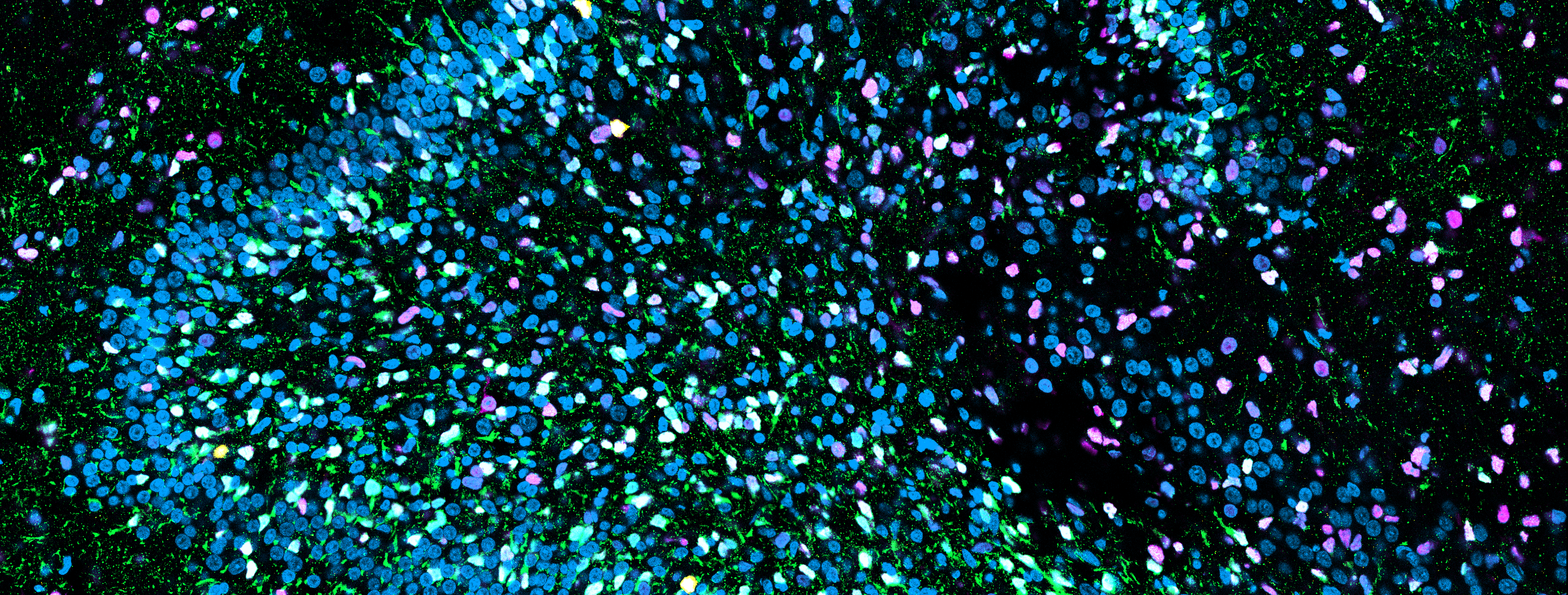Speaker
Description
"CAPRIN1 is a ubiquitous protein involved in cell proliferation and migration. In neurons, it regulates the transport and translation of mRNAs involved in synaptic plasticity. We have previously associated CAPRIN1 loss-of-function variants with a rare autosomal dominant neurodevelopmental disorder (NEDLAAD, OMIM #620782), showing several defects on hiPSCs-derived neurons, including decreased process length, overall disruption of the neuronal structure, enhanced neuronal death, impaired calcium signaling, increase protein translation and oxidative stress.
We performed bulk transcriptomics analysis in early and late differentiated neurons to further define the mechanisms behind those neuronal defects. The sequencing data explained the previously observed defects on CAPRIN1 deficient neurons, highlighting impaired oxidative phosphorylation, neuronal outgrowth, and translation. We also found a significant increase in genes involved in cell cycle control, DNA replication, proliferation, and dopaminergic neurogenesis, as well as a decrease in GABA pathway-related genes. Preliminary data on CAPRIN1+/- neuronal progenitor cells showed an increased proliferative rate and impaired expression of neuronal progenitors’ markers, suggesting a possible loss of balance in neuronal proliferation/differentiation. To explore these features, we generated forebrain cortical organoids (fBOs) from CAPRIN1 patient-derived hiPSCs lines and controls to analyze their cellular architecture, neuronal activity, and cellular composition, combining immunofluorescence analysis and a multicolor immunophenotyping panel. We observed an essential impact of CAPRIN1 loss on the architecture development of fBOs and an impaired proportion of GFAP+ and MAP2B+ cells. Metabolic analysis on fBO-derived cells showed a switch toward aerobic glycolysis, further supporting defects in the cellular organization of the fBO. To further dissect fBOs composition, single-cell RNA-seq was performed at 40, 60 and 90 days of differentiation; data analysis and pseudotime trajectory study are ongoing.
In conclusion, our study will unravel the impact of CAPRIN1 loss on neurodevelopment, shedding light on its role in neurogenesis, neuronal differentiation, and proliferation."
| Author(s) | *Lisa Pavinato 1,2; Chiara Leso 3; Antonietta Verrillo 1,2; Eleonora Campus 4; Elena Rita Vecchi 4; Andrea Angius 5; Vincenzo Rallo 5; Verdiana Pullano 6; Francesco Pintus 3; Giorgia Borgini 7; Alessia Albano 8,9; Brunhilde Wirth 10,11; Luciano Conti 3; Valentina Proserpio 8,9; Arianna Baggiolini 1,2; Alfredo Brusco 6,12 |
|---|---|
| Affiliation(s) | "1. Institute of Oncology Research (IOR), BIOS+, 6500 Bellinzona, Switzerland; 2. Università della Svizzera Italiana, 6900 Lugano, Switzerland; 3. University of Turin, Department of Clinical and Biological Sciences, Orbassano (TO), Italy; 4. Lab. Of Stem Cell Biology, Department of Cellular, Computational and Integrative Biology – CIBIO, University of Trento, Italy; 5. Institute of Genetic and Biomedical Research, National Research Council, 09042 Monserrato (CA), Italy; 6. University of Turin, Department of Neuroscience “Rita Levi Montalcini”, Turin, Italy; 7. University of Turin, Department of Medical Sciences, 10126 Turin, Italy; 8. University of Turin, Department of Life Sciences and Systems Biology, Turin (TO), Italy; 9. Molecular Biotechnology Center “Guido Tarone”, University of Turin, Torino, Italy; 10. Institute of Human Genetics, Center for Molecular Medicine Cologne, Center for Rare Diseases Cologne, University Hospital Cologne, University of Cologne, 50931 Cologne, Germany.; 11. Institute for Genetics, University of Cologne, 50674 Cologne, Germany; 12. Medical Genetics Unit, Città della Salute e della Scienza University Hospital, 10126, Turin, Italy" |

